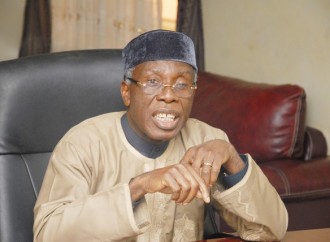

Agriculture is the mainstay of mankind, therefore wise nations all over the globe give it a priority by developing and exploiting this sector for the upkeep of their teeming populations through the earning development purpose, as well as employment, stemming down of crimes, corruption and other forms of indiscipline which work against all factors of life, living and most of all economic production.
With the recent fall of oil price in the International market, many countries, including Nigeria have resorted to alternatives. Nigeria as a country has neglected Agriculture with the discovery of oil. It is important to go back because agriculture is the major and most certain path to economic growth and sustainability. It encompasses all aspect of human activities being the art, act, a cultural necessity and science of production of goods through cultivation of land and management of plants and animals which create an activity web-chain that satisfies social economic needs.
To plug the drainage in national purse, the federal government through the Nigerian Customs Service (NCS), re-introduced the ban of rice import through its land borders in 2016, as an effort to boost local rice production in Nigeria. According to the Governor of Central Bank of Nigeria (CBN) Governor, Godwin Emefiele, “The fall in oil prices has given us a timely reminder that we have no choice but to diversify our economy away from oil, and into agriculture, manufacturing, services, and other non-oil sector, which led to the roll out of N40 billion for the “Anchor Borrowers Programme” (ABP) for Rice farmers. The program was designed to assist Small Scale farmers to increase the production and supply of feedstock to agro-processors.
The Anchor Borrowers Programme launched in November 2016, said to have been pushed by 14 states of Kebbi, Sokoto, Niger, Kaduna, Katsina, Jigawa, Kano, Zamfara, Admawa, Plateau, Lagos, Ogun, Cross-Rivers and Ebonyi for rice and wheat farmers to advance their status from small holder farmers to commercial or large growers. This however is in line with the CBN programme aimed at creating an Ecosystem to line out-growers (small holder farmers) to local processors. It is also aimed at diversifying the economy by addressing local production of agricultural products.
The Minister of Agriculture and Rural Development, Chief Audu Ogbeh said in the inauguration of the Agriculture Roadmap “the Green Alternative” an Agriculture Promotion Policy (2016-2020) the vision was to revive agric sector to boost food production in the country. He also went further to say the policy will serve as the new fulcrum for Economic Diversification inclusive growth and sustainable development in the sector. The policy however will also allow farmers to access land, soil fertility, information and knowledge, input, production management, storage etc
With the ABP tested in Kebbi state, the Commissioner for Agriculture and Natural Resources, Garba Muhammad Karaye who was represented in an interview said the programme will bring “immense benefits inherent in rice production and other crops as exemplified in the exploitation of over 178,000 hectares of FADAMA land which the state is supplied with to meet the rice demand in the country”. Farmers no doubt have applauded the programme stressing that they have never had it so good in terms “financial prosperity”. The state chairman , Rice Farmers Association of Nigeria (RIFAN) Yusuf Isa in Kebbi state said prior to the ABP , farmer could only harvest four tons of rice per hectare and they sell one for N5,500, but today they harvest up to seventy to eighty tones, selling at least N9000 per beg. This, according to him, was a success in the state.
The question is the will the programme truly rescue the nation from impending food crisis? Opinions vary. Nigeria needs about 6.5 million metric tons of rice and currently only 1.5 million metric tons is produced locally as at 2015 and a deficit of five million left to imports. However farmers in Sokoto and Zamfara believed that if the borders remain closed to import, Nigeria could before 2020 produce enough food to feed itself and export to neighbouring African countries; that is though, if the programme is sustained and is introduced to other states
Farmers in the south-west have also lent their voice to the clamour for self-sustainability in food production, calling for the ABP to reach the region as well as every state in the country.
Is it however realistic for Agriculture to become the new oil in Nigeria? Of course there will be challenges of resuscitating agricultural production and development because the task is enormous . This will require stepping up production to meet and bridge the import gap, provide for strategic food reserves and generate surplus for exports to earn income and sustain farming enterprise.
